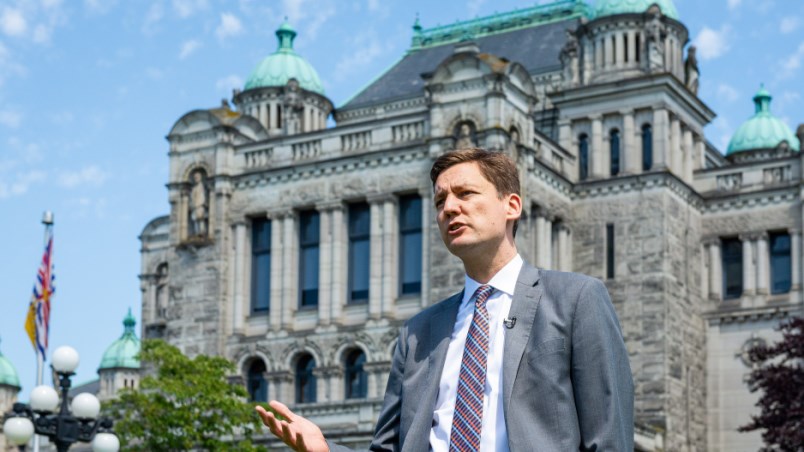New home ownership data from Statistics Canada show taxes and government policies imposed by the B.C. government in 2017 and 2018 coincided with less speculation and a boost to first-time homebuyers.
In B.C., the rate of first-time buyers increased 5.6% in 2018 and 2019 whereas repeat buyers decreased 10.1%, the Canadian Housing Statistics Program stated Tuesday in a report highlighting “inequalities” in housing.
Growth in the number of first-time buyers in this time varied across British Columbia. The Kelowna area had the largest increase with 31.1%; compared to Abbotsford-Mission at 13.4%, Vancouver with 6.1% and Victoria at 14.1%.
Statistics Canada speculates “the decrease in the number of repeat buyers in British Columbia came in the wake of provincial legislation implemented to cool the real estate market, which may have dissuaded existing owners from moving or from investing in further properties.”
The report notes an added property transfer tax on homes sold for more than $3 million, a new speculation and vacancy tax aimed at moving homes into the rental market and an increase of the foreign buyer tax from 15% to 20%.
Such measures were ushered in by Attorney General David Eby, the minister responsible for housing, and then-finance minister Carole James of the B.C. NDP government.
How big is the wealth gap between top-tier and bottom-tier homeowners?
The report notes British Columbians who own multiple properties account for nearly one-third of all housing stock in the province.
Data from the Canadian Housing Statistics Program shows multiple homeowners account for 15% of all homeowners in B.C. and hold 29% of all properties.
Meanwhile, the wealthiest 10% of homeowners, according to declared income, earned more than the bottom 50% of homeowners combined.
Measured by housing values, those who owned the top 10% most wealthy homes accounted for 29% of the sum of all residential property values in B.C.



